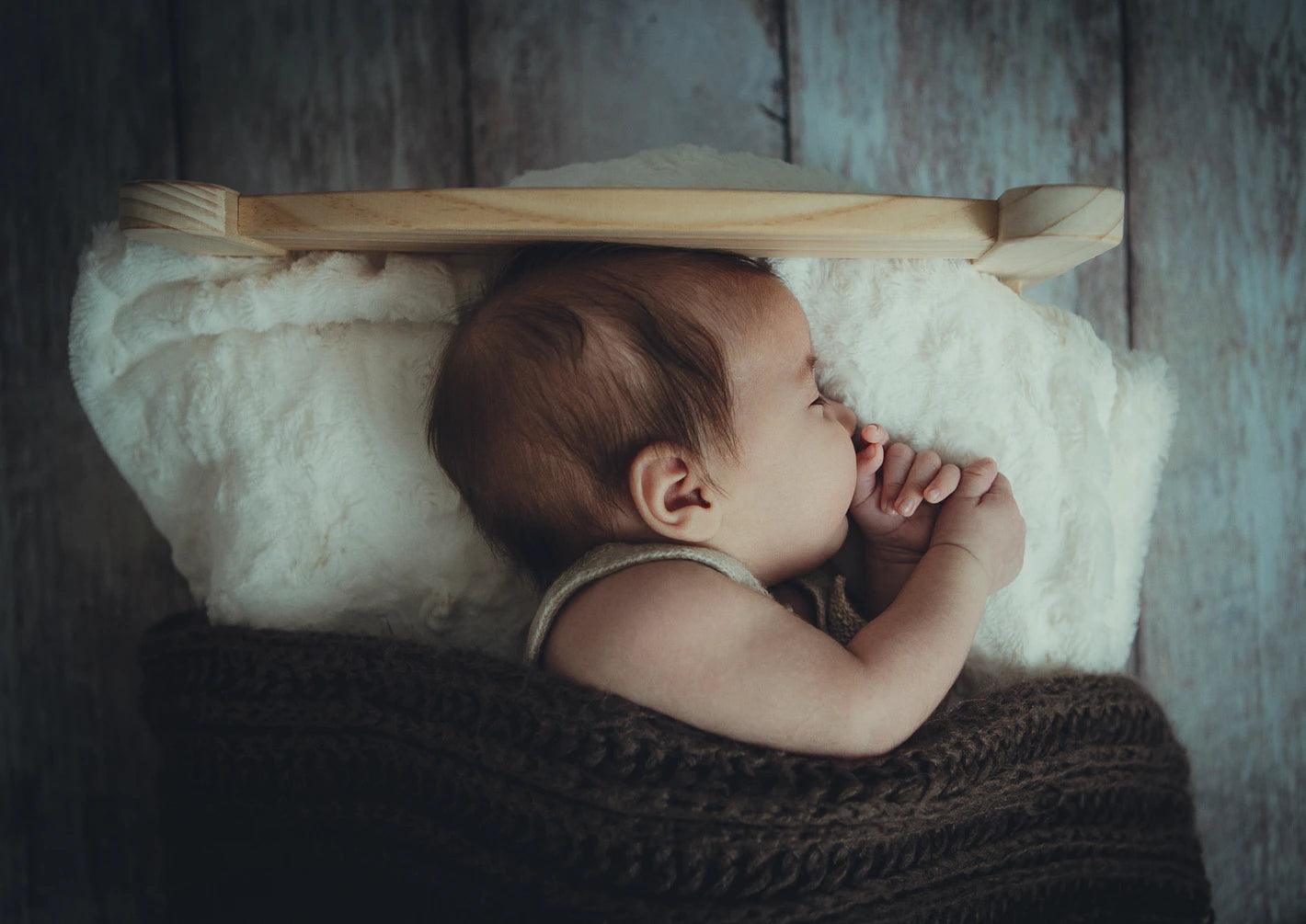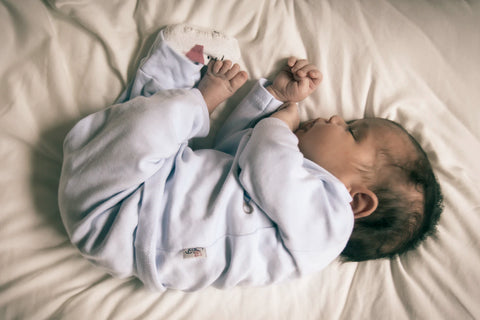7 FAQs for Baby’s Sleep
•Posted on August 15 2022

A baby's sleep is very important for their healthy growth - if they don't sleep well, it can not only affect the parents' sleep, but also cause harm to the child.
Sleep is important for children, and good sleep is an important aid to their growth. But when it comes to children's sleep problems, it can cause parents a lot of headaches. Because children are either used to sleep late, or they can't wake up in the morning. It is difficult to ensure a good sleep.
We have compiled 7 common baby and toddler sleep questions to answer questions about sleep safety, how to put them to sleep, sleep duration, etc. We hope you can find it helpful.
Q1: Your baby sleeps on his back, but always rolls over on his stomach at night, should you turn him over?
Letting your baby sleep on his back is the safest sleeping position.
However, we will find that after 4 months or 6 months many babies will already turn over in sleep by themselves. Although they are on their backs when placed in bed, we see them turn to their sides or sleep on their stomachs in the middle of the night or at dawn.
If babies turn over on their own in their sleep, you can let them stay in the position they sleep in and not have to deliberately turn them over. But only if the sleep environment is safe! Make sure there are no extra items such as pillows, loose sheets, bed surrounds, etc. in the area where your baby sleeps.
Q2: When will babies be able to sleep through the night?
In terms of children's development, most babies can be free of night wakings by 6 months of age, but studies show that 25%-50% of babies can still have night wakings. 30% of children still have night wakings around 1 year of age, and the incidence of night wakings decreases to 15%-20% in children aged 1 to 3 years. If a child wakes up and cries a lot and needs parental help to fall back to sleep, it is necessary to draw the attention of parents and intervene.
However, there are individual differences among children, and each child's sleep pattern is different, so each case needs to be analyzed.

Q3: Why do newborns wake up easily?
Newborns usually do not sleep for more than 1 to 2 hours continuously, and there is no circadian pattern. Usually, they sleep for 8 to 9 hours during the day and 8 hours at night.
The tendency to wake up from sleep is actually an important mechanism of self-protection for babies. This phenomenon of constantly turning awake is determined by their physiological characteristics.
On the one hand, small babies have a high growth demand and need to drink milk constantly. Newborn babies have a very small stomach capacity, and on the first day after birth, their stomach capacity is only 5-7 ml, which is almost the size of a marble. But newborns need a lot of energy to grow, after all, they have to double their weight in the 4th-6th months of life! Since the stomach capacity is so small, little ones have to rely on frequent feeding to meet the needs of growth and development.
On the other hand, the development of various organs of small children is also immature, they may have a variety of discomfort. For example, their intestines are just starting to be "put into use" and are still in the "breaking-in" period.
In addition, out of fear of the world, newborns are often stimulated by a variety of information and sleep restlessly.
Q4: What does it mean when my child wakes up grumpy?
If your child wakes up grumpy, it may mean that your child is not getting enough sleep or deep sleep. A child who has really slept well wakes up cheerful. But with babies, there may not be anything better we can do to avoid this situation altogether. Sometimes if you don't wake him up, you may have trouble falling asleep again during the night.
Q5: What should I do if my child is often sweating profusely at bedtime?
The average body temperature of children is higher than that of adults and sleep is the time when the rate of change in body temperature is fastest (body temperature drops rapidly as the body enters a resting state). Sweating is a form of heat dissipation that helps the body temperature come down, so children are very prone to sweating when they go to sleep.
The body is allowed to cool down and help fall asleep at the beginning, and should be kept properly warm at night so as to reduce the disturbance of sleep by thermoregulation. The best room temperature for sleep is about 18 degrees (15.5 degrees-19.5 degrees) and covered with a breathable quilt.
Q6: How long does my baby need to sleep during the day?
Depending on your child's age, give him enough time to nap during the day (the following are just generalities; sleep patterns vary greatly between individuals).
- Near the age of 4 months, most babies have started to develop a more regular sleep pattern; babies aged 4 to 6 months usually nap 2 to 3 times during the day, for 30 minutes to 2 hours each time.
- Babies 6 to 12 months usually nap 2 times during the day, some for only 20 minutes at a time, but some sleep for 1-3 hours.
- 1 to 3 year olds usually nap once (1 to 3 hours); individual 1 year olds may take 2 naps during the day, but try not to let your child nap too late to avoid difficulty sleeping at night.
- Preschoolers aged 3 to 5 years old need about 11 to 12 hours of sleep at night, plus a lunch break. A portion of children after the age of 3, and most children after the age of 5 actually do not need naps.

Q7:What are the ways to soothe your baby to sleep?
Don't pick up or feed your baby at the slightest movement, as this not only affects your baby's light sleep, but also develops bad habits. When your baby cries, observe and wait for two or three minutes before checking if the diaper needs to be changed.
1. Use a sleeping bag.
Sleeping bags can wrap your baby up and give him a sense of security. Choosing a sleeping bag is not easier than bulk buy children's clothes, if you want to know how to choose a baby sleeping bag, click here.
2. Gently shake
Not left and right, but like walking, evenly and gently shake up and down in small increments. Do not rock excessively, as it is easy to hurt your baby's inner ear or cervical spine.
3. Sucking
The baby's method of self-soothing. Babies are able to recognize and learn about their bodies through mouth and hand contact, a process of IQ development and quieting down.
4. Sound soothing
Use a voice that is smaller than usual speech, sing or hum a tune to the baby.
Comments
0 Comments
Leave a Comment